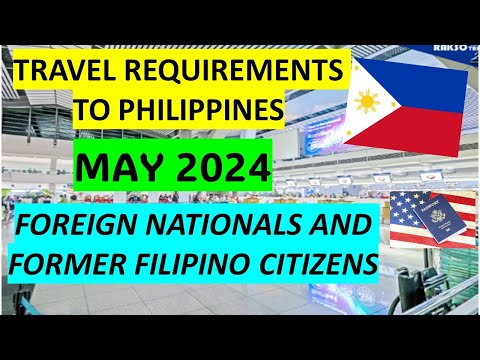
The Philippines, with its stunning beaches, vibrant culture, and warm hospitality, continues to be a popular destination for travelers from around the world. If you’re planning a trip to this Southeast Asian country, it’s essential to understand the entry requirements and travel regulations that apply to foreign nationals. This comprehensive guide outlines everything you need to know about visas, health protocols, and other travel necessities for visiting the Philippines.
### Visa Requirements
The first step in planning your visit is determining whether you need a visa. The Philippines offers visa-free entry to citizens of over 150 countries for stays ranging from 14 to 59 days. Some of the countries eligible for visa-free entry include the United States, Australia, Canada, and most European nations. Travelers must have a passport valid for at least six months beyond their intended stay and must possess an onward or return ticket.
For those who are not eligible for visa-free entry or who wish to stay longer than the permitted visa-free period, obtaining a visa from a Philippine embassy or consulate prior to arrival is mandatory. There are various types of visas available depending on the purpose of your visit (e.g., tourist, business, student).
### Health Protocols
In response to global health concerns such as COVID-19, the Philippine government has implemented several health protocols designed to safeguard both travelers and residents:
1. **Proof of Vaccination**: Travelers are generally required to show proof of vaccination against COVID-19. The accepted vaccines include those approved by local authorities or the World Health Organization (WHO).
2. **Health Declaration Form**: Upon arrival, travelers may be required to fill out a health declaration form detailing their medical history and current state of health.
3. **Testing Requirements**: Depending on prevailing conditions at the time of travel, there may be requirements for pre-departure or on-arrival COVID-19 testing.
4. **Quarantine Measures**: Depending on one’s vaccination status and country of origin, there may be mandatory quarantine requirements in designated facilities or via home quarantine.
It’s crucial to check updates frequently as these protocols can change based on global and local health situations.
### Customs Regulations
Upon entering the Philippines, foreign visitors should be aware of customs regulations which include restrictions on certain items like tobacco products and alcohol – typically limited per person – along with prohibitions against importing illegal drugs and firearms without appropriate permissions.
### Local Laws and Etiquette
Understanding local laws is vital when visiting another country:
– Drug offenses carry severe penalties including life imprisonment or even death.
– Disrespect towards national symbols like flags or anthems can result in penalties.
– Environmental laws are strict; acts such as littering in natural parks can lead to fines.
Social etiquette also plays an important role:
– Filipinos often use titles with surnames unless otherwise specified.
– It’s customary to accept hospitality when offered as refusing can seem rude.
### Other Considerations
**Insurance**:
It’s advisable for travelers to acquire comprehensive travel insurance that covers medical expenses due-to illness or injuries sustained during their trip along with possible travel disruptions.
**Climate**:
Knowing seasonal variations helps in better planning your trip; while generally tropical year-round; typhoon season (June-November) could affect your plans especially when visiting northern parts.
As you prepare for your journey by viewing up-to-date information from reliable sources such as Philippine embassies websites concerning current travel advisories & requirements ensuring an enjoyable visit free from unnecessary complications aligns with anticipated cultural experiences making lasting memories in this unique archipelagic nation!
